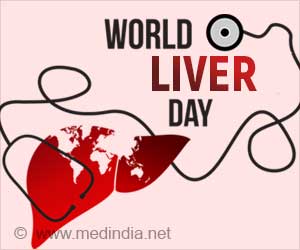Highlights
- Obesity is the accumulation of excess fat in the body that impairs health.
- Parental obesity is linked with developmental delays in children.
- Children of obese parents were three times more likely to fail problem-solving tests by the age of 3.
The research study was published in the journal Pediatrics. It was conducted by the scientists at the NIH's Eunice Kennedy Shriver National Institute of Child Health and Human Development (NICHD).
Edwina Yeung, Ph.D., in the NICHD’s Division of Intramural Population Health Research, said, "The previous U.S. studies in this area have focused on the mothers' pre- and post-pregnancy weight."
"Our study is one of the few that also includes information about fathers, and our results suggest that dad's weight also has a significant influence on child development."
The research team also indicated that around 1 in 5 pregnant women in the United States was either overweight or obese.
The research team reviewed the data collected from the Upstate KIDS study, which determined whether fertility treatment could be a reason for developmental problems in children from the age of 3.
Around 5000 women were enrolled for the study between 2008-2010. These women were roughly 4 months after giving birth in the New York State.
The study was further carried out by testing their children from 4 months of age and were retested 6 more times till the age of 3. The details regarding the health and weight of the mother before and after pregnancy and the weight of their partners were also collected.
Study Findings
- Children of obese mothers were 70% more likely to fail the motor skill test by the age of 3 when compared to normal weight mothers.
- Children of obese fathers were 75% more likely to fail the social competence test, which is an indicator of how well the child can interact at the age of 3.
- Children of extremely obese parents were three times more likely to fail the test’s problem solving section at the age of 3.
They also concluded that if the link between parental obesity and development delays in children are confirmed, then doctors must consider taking the weight before screening children for developmental delays.
Obesity
A body mass index of more than 30 may cause obesity. Obesity may result in serious complications. Eating a healthy diet and following regular exercise may help to prevent obesity.
Risk Factors of Obesity During Pregnancy
- Miscarriage
- Children may be born with birth defects (neural tube defects)
- Developmental problems due to preterm births
- Risk of Still birth
- Obesity and Pregnancy - (http://www.acog.org/Patients/FAQs/Obesity-and-Pregnancy)
Source-Medindia
















